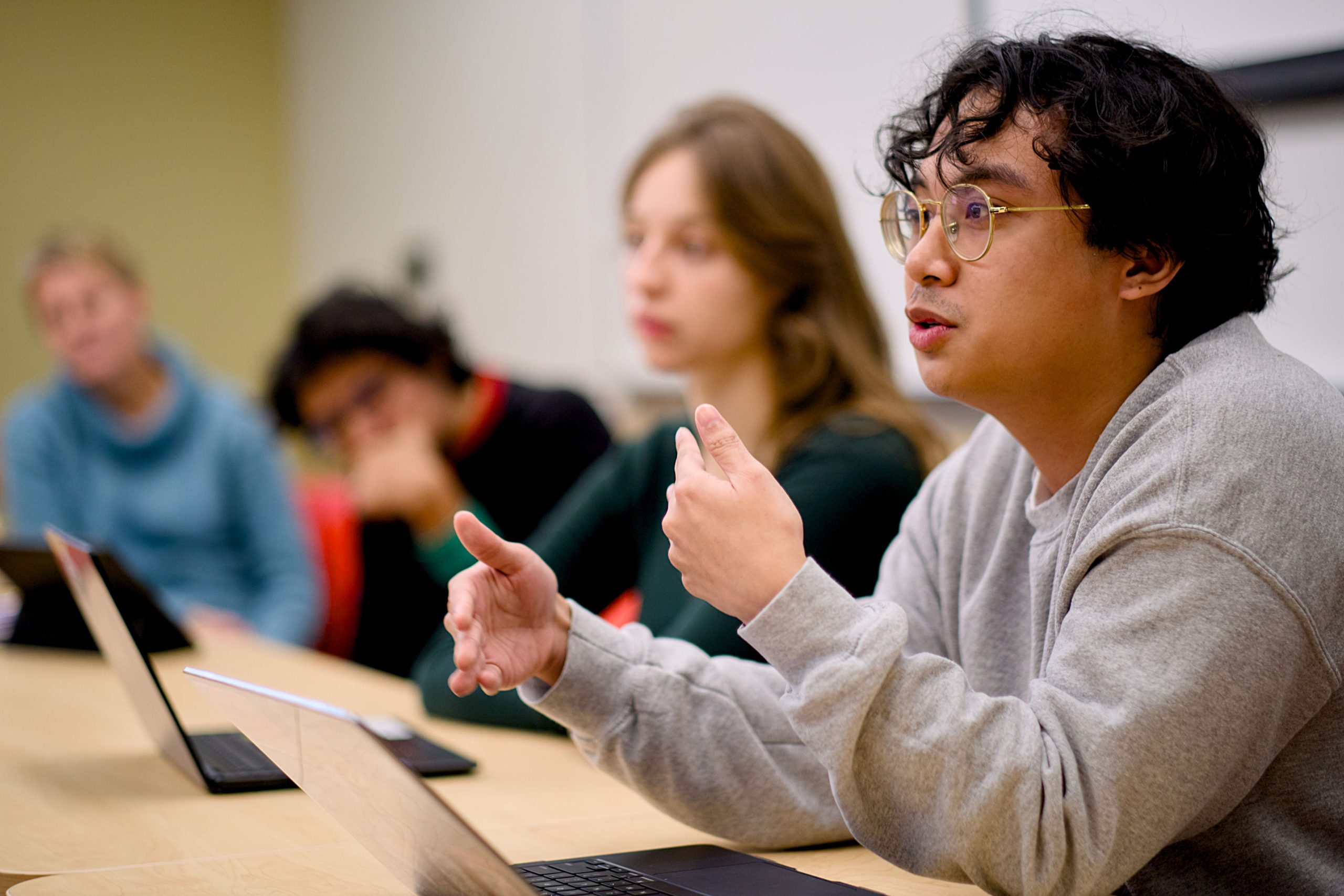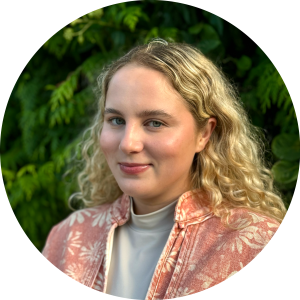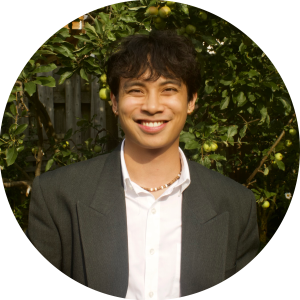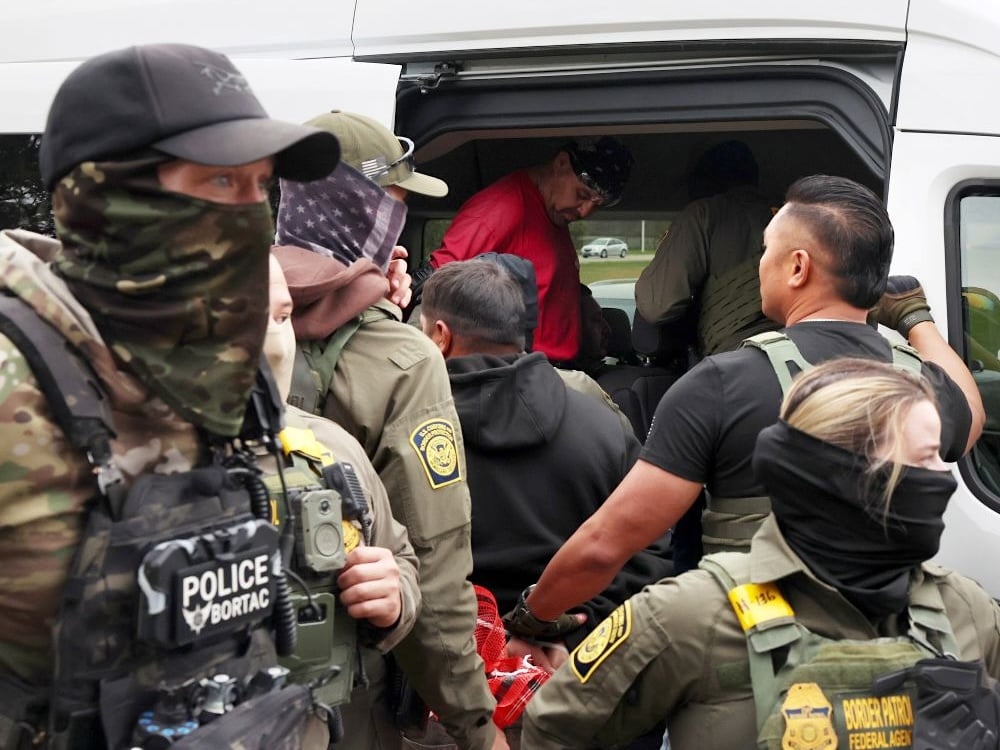

Adam Arca during a discussion in the ASTU seminar.
Adam Arca and Caroline Armstrong, two students from the 2024–25 cohort, reflect on their experiences in the Graduate Certificate in Migration Studies, sharing how the program shaped their academic journeys.


“This program changes lives. It gives students from across disciplines the tools, language, and community to pursue migration research with confidence and clarity.”
“The Graduate Certificate in Migration Studies at UBC offered me not only academic enrichment, but a profound sense of belonging. As an MA student in Classical and Near Eastern Archaeology, I began with an abstract interest in migration, rooted in my undergraduate research. But it was through the Certificate that I realized how deeply migration intersects with my field and academic identity.
Courses like AMNE 575B: The Archaeology of Migration transformed my academic trajectory. They gave me language and frameworks to ask new questions—about identity, belonging, and the fragility of past systems amid migratory pressures. I found resonance between ancient human movement and contemporary debates, particularly through an interdisciplinary lens. Taking GEOG 545A: Climate Change, Migration, and Health shifted the course of my academic path entirely. Equally transformative was the core seminar ASTU 505, where a vibrant cohort of students from diverse disciplines engaged in open dialogue, peer feedback, and professional development. It was very nice to know we were united by our passion for migration studies within that room.
This experience underscored the importance of interdisciplinary collaboration and community, which are foundational to the Certificate’s value. Without it, I may never have recognized migration as central to my research, nor would I have connected with mentors whose guidance reshaped my academic goals. I would encourage students to wholeheartedly apply for the Certificate program because I am confident it will help them reach their goals in leaps and bounds.”

“The certificate offered a space for community, mentorship, and cross-disciplinary learning that was missing in my core degree. It made me feel, for the first time, that I could call myself a scholar. I now plan to pursue a PhD—possibly in geography or political science—something I never imagined when I entered public health.”
“When I began the Graduate Certificate in Migration Studies, I came from a discipline—public health—where migration was often treated as a background variable, not a subject of inquiry. I hadn’t encountered migration studies in any sustained way in my education. This certificate opened up entirely new ways of thinking and changed the trajectory of both my academic work and my sense of purpose.
As a second-generation Filipino immigrant, my understanding of migration has long been shaped by lived experience—writing workplace claims for my parents, interpreting official letters, navigating the emotional toll of being the “English speaker” in the family. But it wasn’t until I became involved with grassroots organizing through Migrante BC and Sulong UBC that I found the language to connect those experiences to broader structural forces: imperialism, labour export, settler colonialism. Still, I craved a space to deepen my learning and bridge the academic and activist parts of my life.
ASTU 505 provided exactly that. Every week, I joined a small cohort of students from different disciplines and life experiences. We reflected together on what brought us to migration studies, heard from inspiring guest speakers and discussed the ethics and stakes of doing migration research. These conversations allowed me to situate my research questions in a larger context. I found myself asking: What does it mean to study migration while being part of a diaspora shaped by colonial displacement? How do we hold space for different forms of knowledge—lived, academic, creative—at once?
[…] The certificate’s courses were intellectually transformative. In GEOG 545: Climate Change, Migration, and Health, I encountered scholarship that historicized public health as a tool of empire—a far cry from how it’s framed in my Master of Public Health program. My major essay on “waste colonialism” connected Canada’s export of garbage to the Philippines with the flow of domestic labourers in the opposite direction. In POLI 521: Political Theory, I wrestled with foundational political theory for the first time and developed a paper on revolutionary politics in the Philippines that helped me understand the state’s role in constructing Filipinos as a global labour force. And in GEOG 492: Oceanic Geographies: Movement, Materiality, and Mobility, I was introduced to oceanic thinking—rethinking sovereignty not as land-based but fluid and archipelagic. That course led me to research Filipino seafarers and the invisibilized logistics labour that sustains global capitalism.
The learning I did through the certificate didn’t stay in the classroom. It directly shaped my practicum project—a national study on migration status and health among queer men. My framing changed entirely: I was able to connect to others with similar experiences, who still reckon with the effects of familial separation and intergenerational trauma that are passed on from things like the Live-in-Caregiver Program and the Temporary Foreign Work Program in Canada. This kind of connection between community and scholarship is what makes the program so powerful.
My practicum project in the MPH program was deeply enriched by these courses. Before the certificate, I was trying to layer critical theory on top of quantitative methods. Now I understand how to interrogate the assumptions embedded in those methods themselves—particularly the “methodological nationalism” that runs through so much public health research. Feedback from instructors and peers helped me refine my framing and scale back overclaims in the data interpretation, and I’ve since presented the paper at multiple conferences.”
Don’t miss this opportunity to join the new 2025/26 cohort; apply by June 23, 11:59 PM PDT!
Contact Information
For any inquiries, please contact Maia Johl, Program and Administrative Assistant, at admin.migration@ubc.ca.


